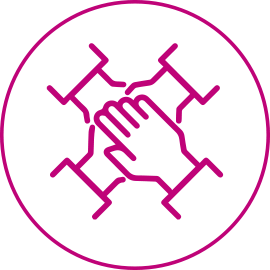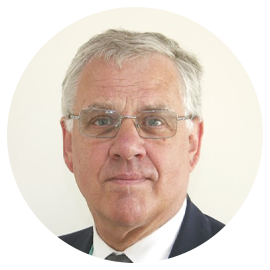What our partners say
In Dorset most of us get good care when we can access it, but many aren’t getting the care they need. More people are having to wait longer. More health and care staff are leaving, and it’s difficult to recruit new people to fill the gaps. There’s a greater need for adult social care, and we are struggling to keep up. Funding is also still an issue, and we’ve been through a lot of political changes in recent years. These everyday pressures make it difficult to step back and plan for the longer term, but we need to do this if we want to make a difference for the people of Dorset in the future.
Working together as a system can help people to live better lives. By making the best use of funding, and looking at who is best placed to deliver a service, we can make sure communities are getting the right care in the right place at the right time.
“Meeting primary needs of having your home, your food, your warmth is getting harder and harder because, obviously,
inflation is going up and people’s wages haven’t gone up for a very long time.”
—
Joint Strategic Needs Assessment
Being part of an integrated care system means:

a joint vision to meet the needs of people in Dorset

being open and honest when making decisions

taking a place-based view of things when planning services

makings sure people and communities are at the heart of everything we do

making the best use of our collective resources to benefit people and communities

focusing on prevention and early intervention

having open and honest conversations with people

working together as equal partners
“Work within teams where we have a complete multiagency partnership between health, social care, mental health,
between all agencies… How we work together would work better, in a way, like a jigsaw like that.
We’d have an understanding [of how people’s] mental and physical needs work together, their housing needs,
how everything fits in together.”
—
Joint Strategic Needs Assessment
Councils have an important role to play in tackling issues linked to health inequality. They also have close connections with their communities.
Working together we can:
- strengthen community services for people living with long-term conditions
- improve support for mental health in the community and in schools
- improve support for carers
- use technology to support older people to stay living in their own homes
- provide care closer to home, away from hospitals
- tackle concerns early on before they become bigger problems
- tackle issues such as homelessness.
Councils have an important role to play in tackling issues linked to health inequality. They also have close connections with their communities.
Working together we can:
- strengthen community services for people living with long-term conditions
- improve support for mental health in the community and in schools
- improve support for carers
- use technology to support older people to stay living in their own homes
- provide care closer to home, away from hospitals
- tackle concerns early on before they become bigger problems
- tackle issues such as homelessness.
“There should be things like a community cafe in every town, because it’s a really good thing. It will help address a lot of problems. I think that those are the bits that I see as gaps.”
—
Joint Strategic Needs Assessment


